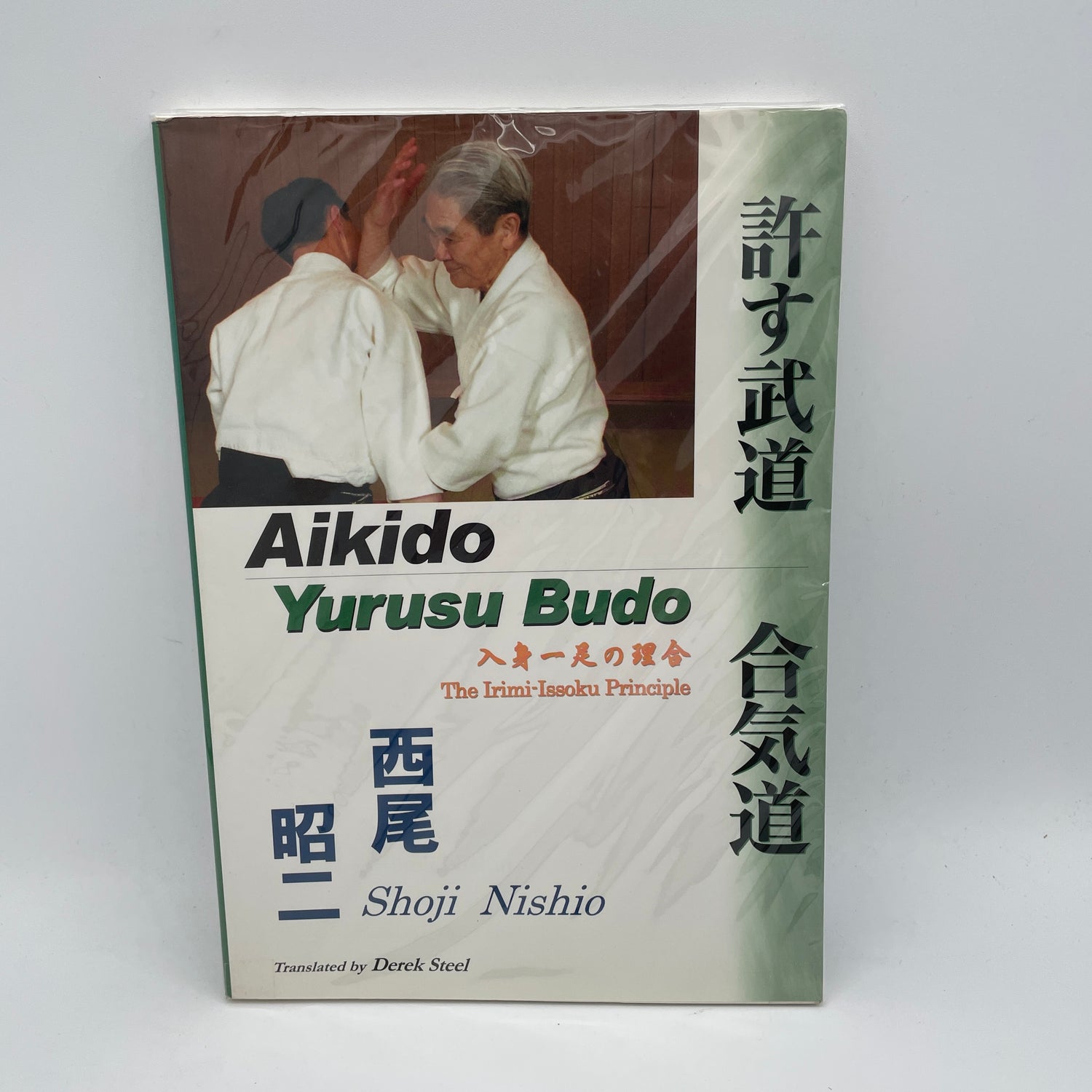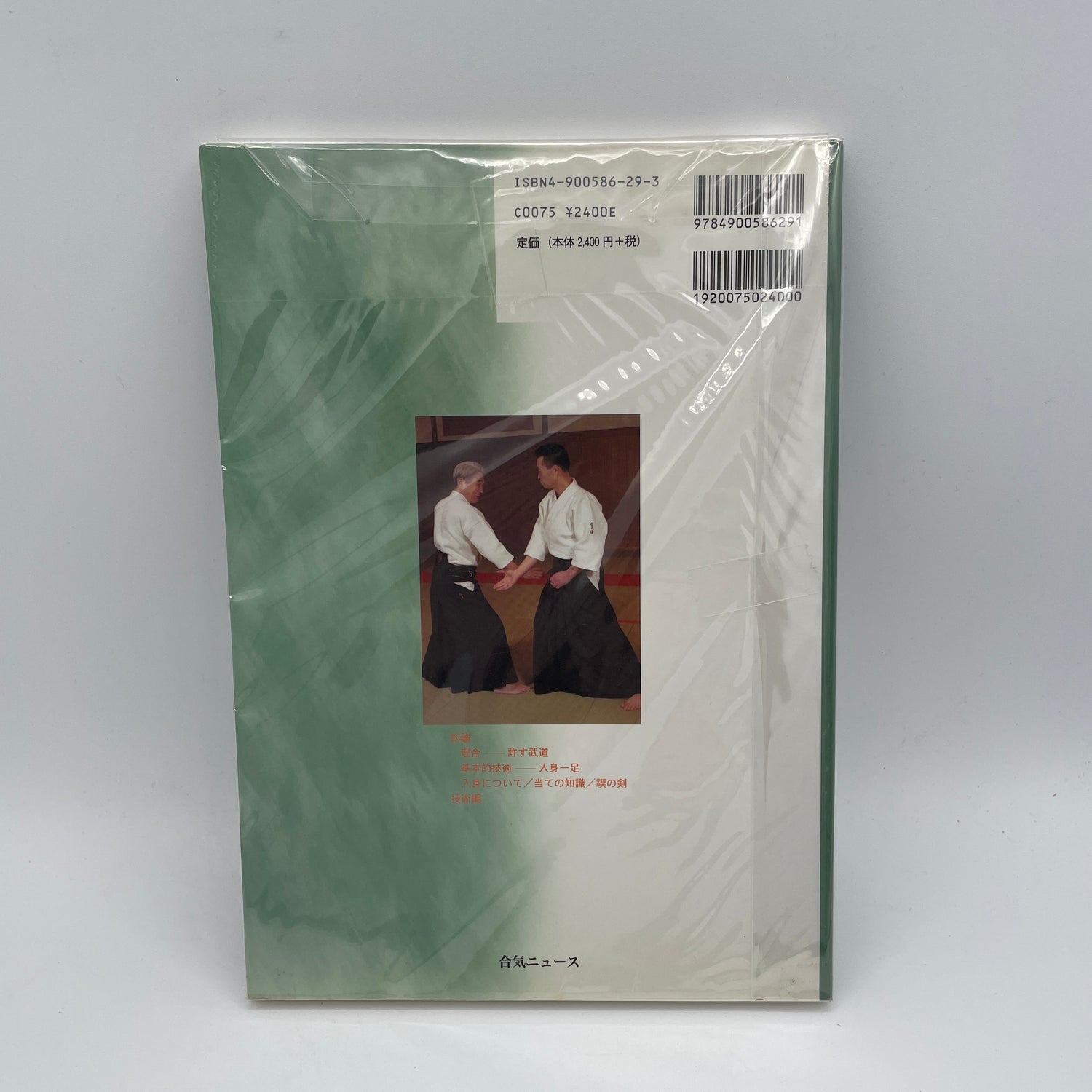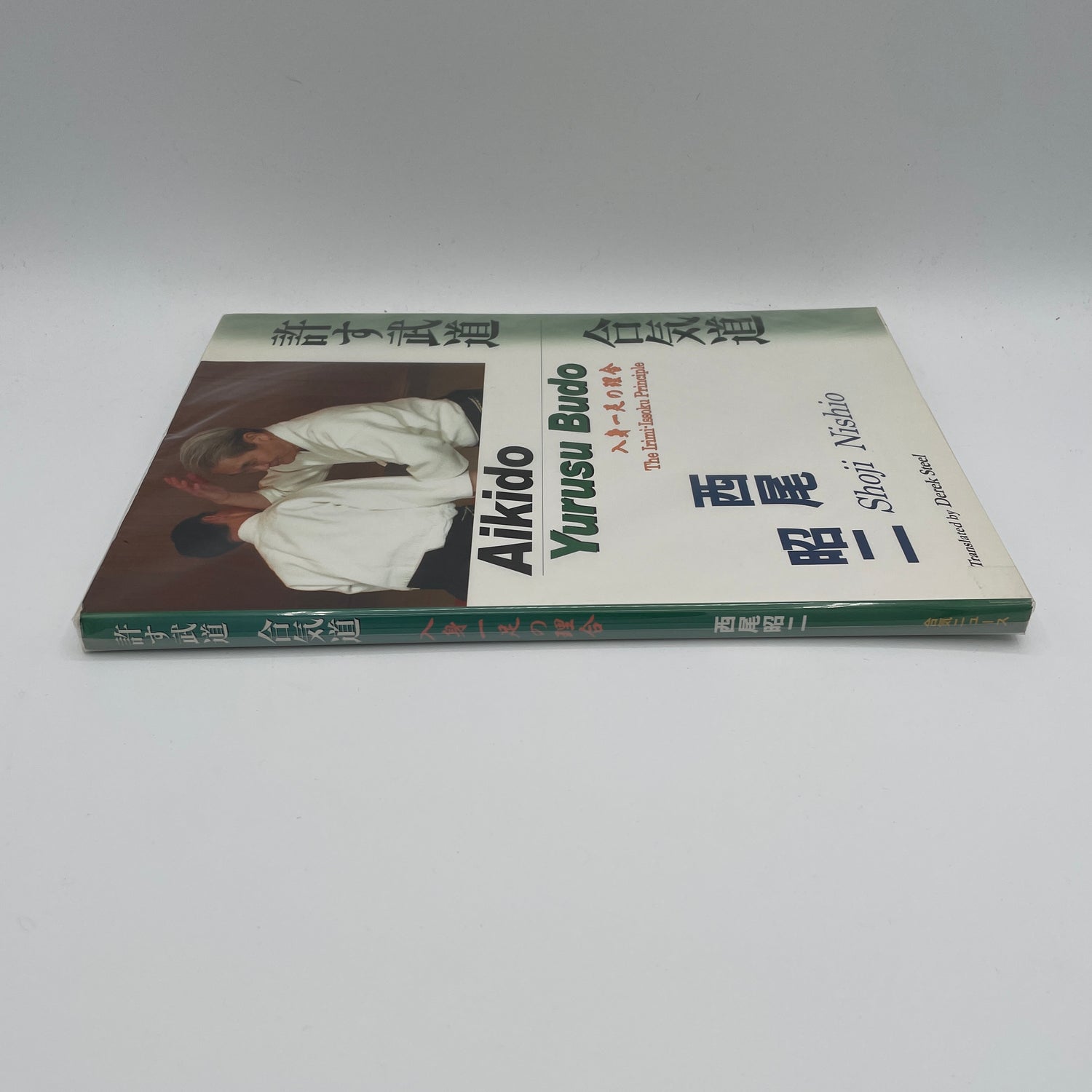Aikido Yurusu Budo: The Irimi Issoku Principle Book by Shoji Nishio (Preowned)
This 208-page technical volume is written by one of the greatest teachers of the postwar era, Shoji Nishio Sensei. This is Nishio Sensei’s first book and is presented in bilingual, Japanese-English format for an international readership. This beautiful volume contains hundreds of technical photos illustrating Nishio Sensei’s empty-handed techniques along with detailed explanations and commentary on their interrelationships with the ken and jo, and the deeper principles of aikido.
Aikido — Yurusu Budo offers a comprehensive look at Nishio Aikido and covers the key principles of his art through the presentation of gyakuhanmi, aihanmi katatedori, sodedori, katadori menuchi, shomenuchi, and yokomenuchi techniques. Both empty-handed versions as well as techniques using the sword and staff are presented.
Shoji Nishio Bio
Shoji Nishio was born December 5, 1927 in Aoyama Prefecture. He enrolled at the Aikikai Hombu Dojo in 1951 and began to instruct around 1955. Nishio Sensei had a broad background in judo, karate, iaido, jojutsu and other arts and incorporated elements from these disciplines into his aikido. He achieved the rank of Aikikai 8th dan.
Nishio taught in northern Europe, America, France, Germany and other countries. He was also active in overseeing branch dojos in many different parts of Japan until his passing in March 2005.
Aikido is a “budo,” a “martial way,” and therefore inextricably rooted in “jujutsu” or “martial technique.” Yet when I look at the aikido world today, I see very little “budo-ness” being expressed in technique, and I wonder if people haven’t begun to forget these important roots… — Shoji Nishio
Impossibile caricare la disponibilità per il ritiro




